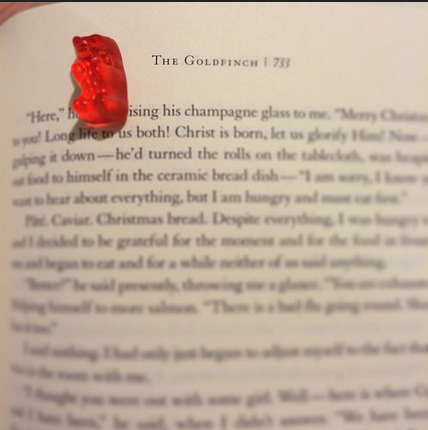
My summer with The Goldfinch
I’ve been spending much of my summer reading. My friends and I started a book club, and the inaugural book was The Goldfinch by Donna Tartt. I was stoked for this book—it got mostly positive reviews and won the freaking Pulitzer Prize, which they didn’t even give out the year my favorite author was shortlisted (2012, Karen Russell for Swamplandia!). I thought this book had to be great! It will start the new book club off with something great, grandiose, epic, and worthy of the discussion a night with friends will offer.
Well… let’s talk about this book.
I gave it two stars on Goodreads. My roommate and I were talking about it last night, and I told him that when I read now, I look at books for the author’s craft. Here are my qualms:
1) Allusions. These can be used well in books, and sometimes they are just heavy-handed. Theo is an orphan that is taken in by benefactors. One has a young female ward with whom he develops an unrequited crush. Her name? Pippa. Does that ring any bells? Pip, Great Expectations. Other characters that are transplants from that book: we have kind of TWO Miss Havishams. We have the Artful Dodger from Oliver Twist in the form of Boris. And then we have a book that attempts to create a Dickensian scope. I think it does this well. I really do. But, I also felt like sometimes the characters pale in comparison to their literary predecessors and lack much depth. Many times, I would just hit myself in the head and roll my eyes.
2) Dickensian scope: Get an editor. Please. The narrative at times is very “I did a, then b, then c, then d, and then thought about e, considered it more, talked about it with a friend, and finally did e, and then f happened.” When this finally breaks—to flash us forward eight whole years, we are robbed of many of the years of adolescence. A veritable bildungsroman changes pace and now we are at… what, a thriller? An attempt at a thriller? Because those last 300 pages are sleepy.
3) The ending. *SPOILER: STOP READING IF YOU DON’T LIKE SPOILERS* The most interesting part, the really ridiculous trip to Europe where characters go to get a painting back that ends in a self-defense shooting, glazes over the “what happens next” and has our protagonist (who, honestly, I was hoping would get thrown in jail because then at least I feel he’d receive his comeuppance) almost turn himself in when, BAM, deus ex machina! No worries—his best friend takes care of everything and Theo doesn’t know because his phone broke, so Boris comes up in a Christmas miracle and, oh, by the way, he has two million dollars for Theo that will be used to right all the wrongs he caused in those eight years we don’t get to see.
4) Pacing. See above about missing years of the narrative.
These are just some preliminary thoughts. I finished the book not 24 hours ago, sacrificing much writing time this summer to read the book, thinking that I could glean many things from the artist to steal for my novel (the last 15 pages of the novel have the narrator distill the moral of the novel for us into a rumination on the nature of art and our place in the universe and how chaos and random chance affects us all. Really. He tells us the f***ing moral of the story in 15 freaking pages); really, I finished the novel and thought, “Huh. In 2012, nothing won a Pulitzer, and yet here is this tome of a novel that, craft-wise, I feel falls very, very flat.”
I’m not really sure what I gleaned, but I did go back through my thesis draft and cut some extraneous detail. I might even cut the allusions I use, so maybe what I gleaned is “What Not To Do.”
